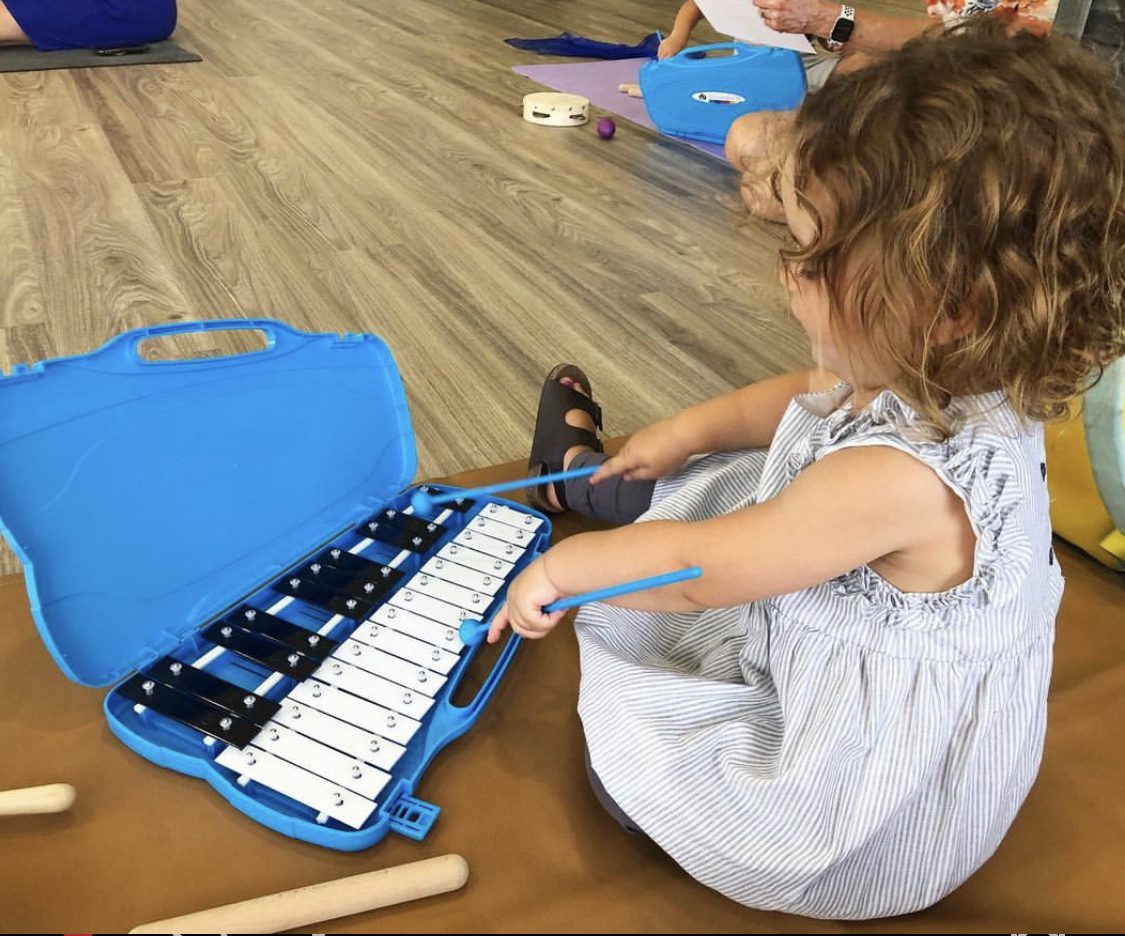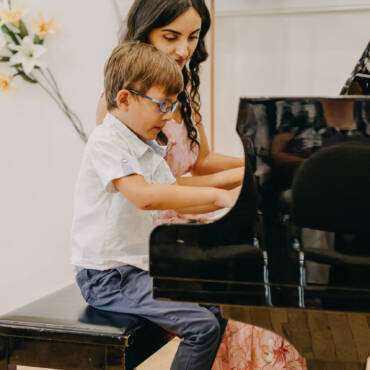Register for our Sonata Music Adventures Program here!
Unveiling the Profound Benefits of Music for Young Children
In the vibrant tapestry of a child’s early years, the melody of music weaves a magical thread of growth and development. Beyond the joyous tunes and rhythmic beats lies a world of profound benefits that nurture cognitive, emotional, and social aspects of a child’s development. Let’s explore the harmonious journey of music and the transformative impact it brings to the lives of young children.
- Cognitive Symphony:
Engaging with music from an early age lays a solid foundation for cognitive development. Research consistently shows that exposure to music enhances neural connections in the brain, promoting improved memory, pattern recognition, and overall cognitive abilities. From recognizing melodies to understanding rhythms, the brain of a musically inclined child becomes a symphony of activity.
- Language Development:
Music is a language in itself, and exposing young children to its nuances aids in language development. The rhythmic patterns, varied tones, and expressive qualities of music contribute to the development of auditory discrimination skills, which are crucial for language acquisition. Singing, listening to songs, and participating in musical activities stimulate the language centers of the brain, fostering communication skills.
- Fine and Gross Motor Skills:
From tapping feet to clapping hands, musical activities encourage the development of both fine and gross motor skills. Playing with simple instruments, dancing to music, and participating in rhythmic movements enhance coordination, balance, and control. These activities contribute to the physical development of young children, preparing them for various physical challenges as they grow.
- Emotional Expression:
Music provides a powerful medium for emotional expression, allowing children to explore and articulate their feelings. Whether through singing, dancing, or playing instruments, young children learn to connect with and express a range of emotions in a safe and creative environment. This emotional intelligence gained through musical engagement becomes a valuable tool for navigating complex emotions in later stages of life.
- Social Harmony:
Participating in music activities fosters social interaction and collaboration. Group singing, playing in a musical ensemble, or engaging in rhythm activities promotes teamwork and cooperation. These shared musical experiences contribute to the development of social skills, such as taking turns, active listening, and mutual respect, laying the groundwork for positive social interactions in various contexts.
- Cultural Awareness:
Introducing young children to a variety of musical genres exposes them to diverse cultures and traditions. From folk songs to classical compositions, children gain an early appreciation for the rich tapestry of global music. This cultural awareness fosters a sense of openness, curiosity, and respect for diversity, shaping well-rounded individuals with a global perspective.
- Confidence Building:
Active participation in musical activities empowers young children and builds their confidence. Whether singing a solo, playing a simple melody on an instrument, or contributing to a musical performance, children gain a sense of accomplishment and pride. This confidence extends beyond the musical realm, positively influencing their approach to learning and tackling new challenges.
The benefits of music for young children extend far beyond the joy of listening to a catchy tune. Through the harmonious interplay of cognitive, emotional, and social elements, music becomes a catalyst for holistic development. As parents, educators, and caregivers, fostering a musical environment for young children sets the stage for a lifelong love of music and a myriad of benefits that resonate throughout their lives. So, let the melody begin, and watch as the young minds compose a symphony of growth and discovery.
Register for our Sonata Music Adventures Program here!
![]()
![]()




